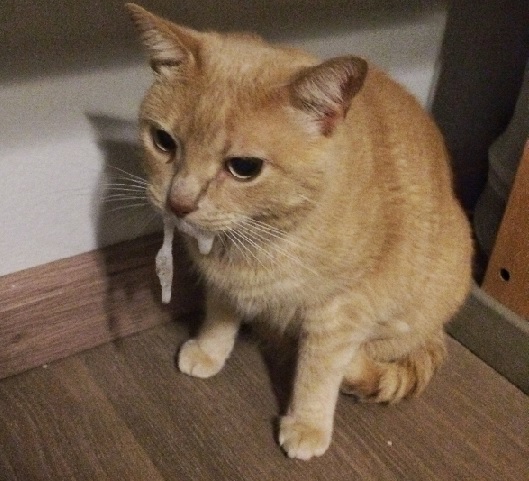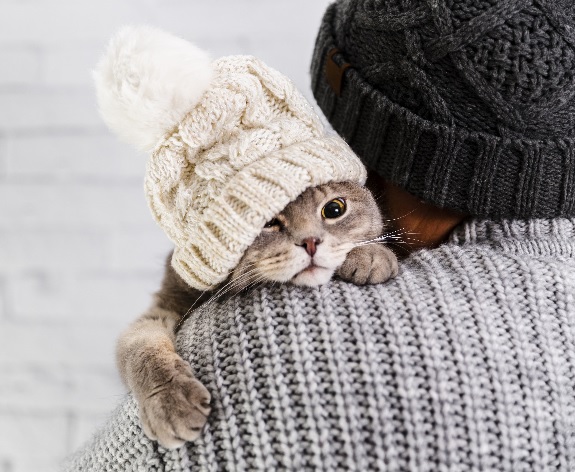
Your cat’s drooling? Don’t panic. Discover why and what you can do to help.
Cats are the feline equivalent of royalty, the crème de la crème of meowsy majesty. They are pretty finicky and take grooming themselves to a whole new level, that’s why they are usually clean and fluffy – so fluffy. So you may be a little surprised when seeing that line of drool trickling from your kitty’s mouth. Is it normal or is my cat turning into a zombie? Hang on, there are so many reasons why this may happen and here’s a few of them.
1. Problems with the teeth or mouth
This is probably one of the biggest causes of drooling in cats. Cavities, tartar, gingivitis and other gum diseases may cause your cat’s mouth to be very sensitive and irritable. Excessive drooling may be as a result of trying to reduce the irritation. There’s no way to be fully certain except you regularly check your cat’s mouth. Additionally, it’s advisable to brush your cat’s teeth regularly and see if its gums are healthy, the color should be pink or pale. Red gums it could mean your cat has gum’s problems. If it’s a dental issue, you might want to see the vet for tooth extraction, dental cleaning, or even medication. If you notice that your cat’s mouth smells, or the drool is tinged with blood, see the doctor ASAP.
2. Kidney failure / Liver diseases
Excessive salivation is also a primary indication of kidney failure. The kidneys are the organs in charge of filtering Blood Urea Nitrogen (BUN) and creatinine out of the body. Kidney failure will cause unwanted build-ups of these toxic compounds, which may cause uremic ulcers in the esophagus, mouth, and stomach, and lead to excessive drooling in cats. Other symptoms may include weight loss, increased thirst, and urination.
Liver diseases and gastrointestinal infections may also cause drooling, nausea and vomiting in cats. You should definitely go to the vet when you notice any of these symptoms.
3. Cold / Sinus infection
Your cat may drool too much because of a cold or an upper respiratory infection. In any case, both are caused by viruses. You can help your cats fight these viruses by giving them enough vitamin-rich diet and supplements to boost their immune system. Lysine supplement is a good start, you can find gel versions with a sweet taste and cats love it (learn how Lysine helped my cat in fighting a respiratory virus that caused her watery eye discharge). You can also make an appointment at the Vet.

4. Stress
Stressful events such as trips to the vet, car rides that may cause motion sickness, startling noises, new pets in the home, or even taking certain medications – especially bitter ones, may cause your cat to drool a little too much. Relax, this is usually temporary and typically lasts till the stressful occurrence is over.
However, if drooling persists, it’s advisable that you take your cat for a checkup at the vets.
5. Trauma
Oral injuries such as broken jaws gotten from painful and traumatic ordeals like being hit by a car, fighting or chewing on electrical wires can cause a cat to slobber a lot. Even though the wound may not be visible, there might be an internal injury that needs a doctor’s attention. Cats are really good at hiding pain, so you may not know something is actually wrong.
6. Happiness
That’s enough with the bad news right? Drooling can also happen if your cat is really happy. Cozy cuddling, snuggling, and scratching make cats purr and sometimes it comes with a little spit.
Humans and cats may seem like two completely different species but we do have something unusual in common — we both dribble in our sleep. This shows a deep level of relaxation and is evidence that your cat is really happy. Another interesting fact is that cats have dreams or flashbacks of when they were kneading as babies. Kneading is when a kitten massages the teats of their mother to stimulate more milk while nursing. So when cats have kneading flashbacks, they remember the wonderful nursing experience and may drool unwittingly.
7. Foreign objects in the throat
It’s a very uncomfortable and unpleasant experience having a foreign body stuck in your throat. Cats have throats too and when this happens to cats, they tend to deal with the situation by vomiting or producing copious amounts of spittle to dislodge the object. The object may be blades of grass, a string, or even a needle attached to a string.
You could help remove this foreign body, but be careful so you don’t get bitten. You could also just take your cat to a vet for help, especially if it’s a string, because it may have wrapped itself around your pet’s intestines.
8. Cancer
Although this is rarer than cases of viral infection or dental issues, oral cancers (malignant tumors) may form at the tongue or the back of the throat of your cat. When this happens, excessive salivation may occur and you most certainly need to see the vet. The earlier you do this, the easier it’ll be to treat this ailment.
9. Poison
Toxins or poison ingested by your cat through chewing on, licking, or swallowing a poisonous substance can cause drooling too. These poisonous substances may include poisonous plants, insecticides, pesticides, and can cause oral erosions and lesions. Plants you should probably look out for include:
- Azaleas
- Tulips
- Chrysanthemums
- Calla Lilies
10. Food
Yes, cats drool at the smell or sight of food just like you. If you notice Nala dribbling once it is snack time or mealtime, don’t be scared, she’s really really excited that you’re about to give her delicious treats.
How cat owners can help reduce or eliminate this drooling
Okay, now we know why your cat is drooling, here are tips every cat owner can apply to help deal with a drooling cat:
-
- When happiness is the cause of the drool, it’s not really a bad thing, right? Well, if you don’t want your cat watering the entire kitchen floor with saliva, do not give it catnip and try to always feed your cat on time.
- Want to give your cat a bitter-tasting medication? One genius way to pull it off is to hide it in cat food. You can also wash down the bitterness with plenty water after the medication has been taken.
- Make sure your cat isn’t exposed to stressful events. Always keep your cat strapped in during car rides too. If traveling with your cat causes your feline to drool a lot, try a natural sedative such as Rescue Remedy. If this doesn’t work, get a sedative at the Vet and this will keep your cat sleeping during the trip.
- Place towels under cats, if you notice drooling during petting, car rides, or sleeping.
- Eventually, nothing beats the good old fashion idea of taking your cat to the vet for a thorough medical checkup.
There you have it; 10 reasons why cats drool and how you can eliminate or reduce some of them. It’s important to remember, you never really know what the cause of the drool might be. So to be safe, go to your vet for proper diagnosis when you notice abnormal salivation in your cat.
Some content contains affiliate links or samples for reviews; I may receive compensation. Learn more
Leave a Reply